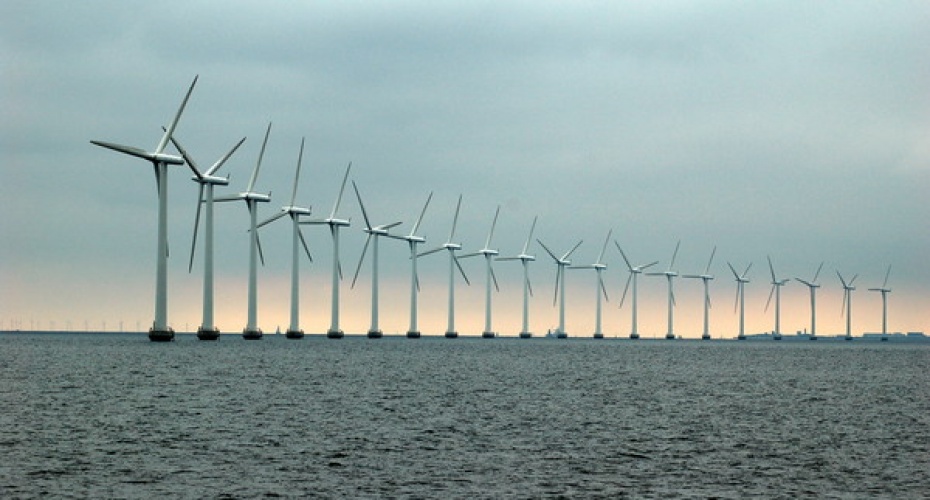
If you'd like to talk to us about supporting a particular area of climate research, please email alumni@exeter.ac.uk or call +44 (0)1392 723141.
Combat Climate Change
Exeter research identifying potential climate ‘tipping points’ – such as dieback of the Amazon rainforest and decline of Arctic sea-ice – has influenced policy and business on a global scale.
Climate change and sustainability are likely to be the most significant environmental challenges of the 21st century and, working closely with the Met Office, Exeter is positioned at the forefront of climate change research.
More than 250 researchers are working across disciplines - and across the University’s Exeter and Cornwall campuses - to influence international policy, shape global debate and develop positive responses to climate change and its associated challenges.
Our research is further strengthened by our relationship with the Exeter-based Met Office. The Met Office’s decision to build the largest supercomputer in Europe at the Exeter Science Park offers both partners the opportunity to extend collaboration and enhance our global impact in this area.
Exeter has diverse expertise at the forefront of climate change research encompassing:
- Earth Systems Science – Research is focused on understanding the Earth as a system, with outputs including methods for identifying climate tipping points.
- Climate Systems – Exeter Climate Systems (XCS) is an innovative world leading centre in climate modelling, including hurricane clusters.
- Geophysical and Astrophysical Fluid Dynamics – Investigation into convection, rotating fluids and magnetic phenomena has vital implications for climate change research.
- Environmental Change – This focuses on documenting past climate change, understanding glacial and ice sheet dynamics and understanding contemporary environments.
The search for reliable, cost-effective and renewable energy sources as fossil fuels deplete is one of the biggest challenges facing us today.
Exeter’s renewable energy researchers are combining their expert knowledge with the latest technological advances to influence policy, shape the debate and develop positive responses to the need for clean and renewable energy for generations to come. Working with partners and industry is key to Exeter’s approach.
World leading renewable energy research
Research into renewable energy and sustainable mining and minerals resourcing is well established at the University of Exeter.
Broadly, this encompasses:
- Renewable energy, by which we mean renewable heat and cooling and marine renewables, as well as both solar and wind energy.
- Sustainable mining and minerals resourcing, encompassing clean technologies in mining, environmental geochemistry, carbon footprint and energy life cycle analysis, and impact assessment.
- Sustainable materials and manufacturing.
Based on the University’s Cornwall campus, the Centre for Renewable Energy has access to the conventional laboratory facilities, including materials testing and workshops as well as access to significant specialist resources and unique facilities because of its coastal location in Cornwall. The Centre has expertise in:
- Marine renewable energy
- Photovoltaics (solar energy)
- Energy storage, carbon capture and storage and biomass (anaerobic digestion)
- Power conditioning and grid interconnection
- Energy policy research
Exeter researchers are also conducting biodiversity research for industry, as part of the team for the EUR 17 million EU ‘Horizon 2020’ funded project that will test a new wave energy converter at Wave Hub in Cornwall. This five-year project will involve a new design of convertor called the ‘Penguin’. Exeter researchers, with colleagues at Plymouth and Uppsala universities, will coordinate biodiversity research at the Penguin installation site at Wave Hub to determine how the device interacts with the marine environment.
The GSI is a ‘go to’ place for global change researchers from around the world, bringing them together with industry, policymakers, students and other stakeholders to tackle shared problems. Crucially we then translate this research into applications that deliver tangible and sustainable social and ecological benefit.
Watch the videos below to see the impact of this research.
Carbon Capture -
Dr Tom Powell and Dr Anna Harper are conducting research into different ways of capturing carbon from the atmosphere in order to keep climate change levels within the Paris Climate Agreement.
Data Systems -
Professor Tim Lenton has been working with Professor Gavin Shaddick at Exeter's Data Science and Artificial Intelligence Institute, to see how big data can help improve air quality and reduce climate change.
Sustainable communities -
Professor Neil Adger is conducting research into sustainable communities, understanding how people respond to global environmental change and how we build resilience.
The Cerrado is a vast tropical ecosystem in Brazil 1.3 million square miles in size, equivalent to the size of England, France, Germany, Italy and Spain combined. It is one of the most biodiverse ecosystems in the world, with more than 10,000 plant species of which 30% grow nowhere else. The area supplies up to 43% of Brazil’s surface water and some of South America's most important rivers - the Amazon, Paraná-Paraguai and São Francisco - begin here.
However, although the Cerrado biome covers more than 20% of Brazil, is not nearly as recognised as the Amazon. Widespread deforestation and conversion of natural habitat to create cattle pasture and soy fields has destroyed more than half of the Cerrado’s native vegetation in recent decades.
A consortium of Exeter alumni have joined the WWF (World Wide Fund for Nature) and the University of Exeter, in setting up a new PhD project to protect the Cerrado. It will develop a new generation of tools to facilitate large-scale restoration of the Cerrado biome, including techniques to predict the optimal vegetation needed to restore key areas. This new information will contribute to the creation of an application to help land-owners identify the most optimal species to plant in order to promote long-term climate-smart restoration.
Part of the work will also involve training local communities in order to give them the skills to collect, store and sell seeds that are most viable for long-term restoration in the context of climate change, providing a sustainable source of income.


